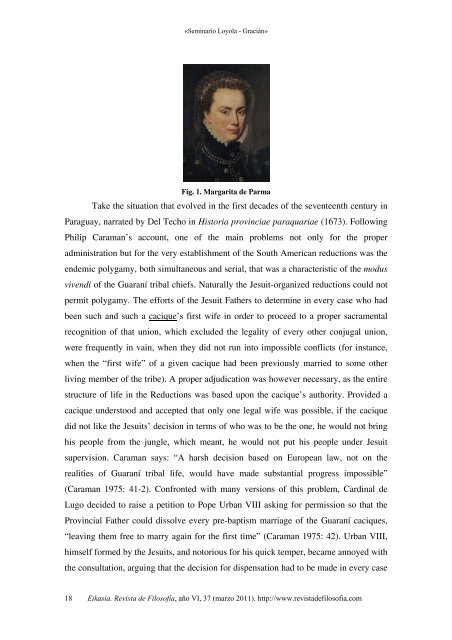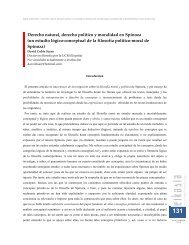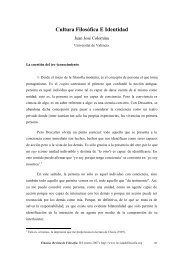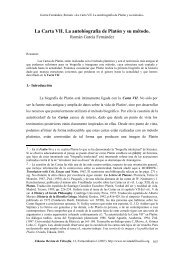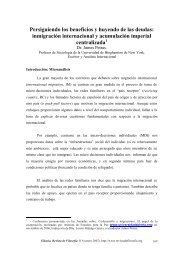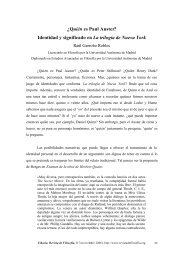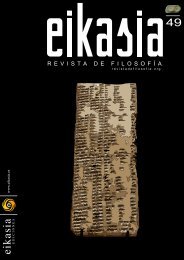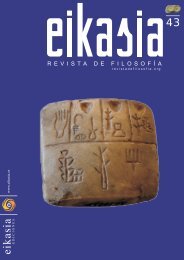Descargar número completo (3,83 MB) - Eikasia
Descargar número completo (3,83 MB) - Eikasia
Descargar número completo (3,83 MB) - Eikasia
Create successful ePaper yourself
Turn your PDF publications into a flip-book with our unique Google optimized e-Paper software.
«Seminario Loyola - Gracián»<br />
Fig. 1. Margarita de Parma<br />
Take the situation that evolved in the first decades of the seventeenth century in<br />
Paraguay, narrated by Del Techo in Historia provinciae paraquariae (1673). Following<br />
Philip Caraman’s account, one of the main problems not only for the proper<br />
administration but for the very establishment of the South American reductions was the<br />
endemic polygamy, both simultaneous and serial, that was a characteristic of the modus<br />
vivendi of the Guaraní tribal chiefs. Naturally the Jesuit-organized reductions could not<br />
permit polygamy. The efforts of the Jesuit Fathers to determine in every case who had<br />
been such and such a cacique’s first wife in order to proceed to a proper sacramental<br />
recognition of that union, which excluded the legality of every other conjugal union,<br />
were frequently in vain, when they did not run into impossible conflicts (for instance,<br />
when the “first wife” of a given cacique had been previously married to some other<br />
living member of the tribe). A proper adjudication was however necessary, as the entire<br />
structure of life in the Reductions was based upon the cacique’s authority. Provided a<br />
cacique understood and accepted that only one legal wife was possible, if the cacique<br />
did not like the Jesuits’ decision in terms of who was to be the one, he would not bring<br />
his people from the jungle, which meant, he would not put his people under Jesuit<br />
supervision. Caraman says: “A harsh decision based on European law, not on the<br />
realities of Guaraní tribal life, would have made substantial progress impossible”<br />
(Caraman 1975: 41-2). Confronted with many versions of this problem, Cardinal de<br />
Lugo decided to raise a petition to Pope Urban VIII asking for permission so that the<br />
Provincial Father could dissolve every pre-baptism marriage of the Guaraní caciques,<br />
“leaving them free to marry again for the first time” (Caraman 1975: 42). Urban VIII,<br />
himself formed by the Jesuits, and notorious for his quick temper, became annoyed with<br />
the consultation, arguing that the decision for dispensation had to be made in every case<br />
18 <strong>Eikasia</strong>. Revista de Filosofía, año VI, 37 (marzo 2011). http://www.revistadefilosofia.com


